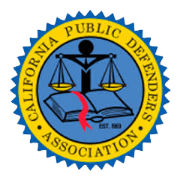The impact of PC 1473.7 on old cases has been significant, providing a critical path for those facing potential adverse immigration consequences because of past convictions. This law, while potentially life-changing, often raises more questions than answers. You may be wondering how it applies to your situation, what the process involves, and if there’s any hope for your specific case. You’re not alone in these thoughts.
Table of Contents:
- Understanding PC 1473.7
- Common Misconceptions About PC 1473.7
- Why Seeking Expert Legal Advice Is Non-Negotiable
- Conclusion
- FAQs About Impact Of PC 1473.7 On Old Cases
- Conclusion
Understanding PC 1473.7
Enacted in 2017, this California law lets people who are no longer in criminal custody ask the court to vacate a prior conviction or guilty plea. This means their conviction is no longer legally valid, essentially removed from their criminal record as if it never happened. Think of it as a way to right past wrongs where a lack of awareness about potential adverse immigration consequences skewed a defendant’s decisions during those earlier proceedings.
But it’s not a magic wand. This law only applies when a person was unaware of how their conviction could impact their immigration status AND those consequences are now posing a serious issue. These issues can include things like deportation or denial of citizenship.
Who Might This Apply To?
Imagine a green card holder years ago accepted a plea deal for a minor offense. They finished their sentence and went back to their life, unaware that particular conviction could get them deported. Fast forward – now they’re facing removal proceedings. This is a real-life example of the impact of PC 1473.7 on old cases.
A Deeper Dive into How it Works
California Penal Code 1473.7 is complex, so getting guidance from a seasoned criminal defense lawyer who understands its intricacies is essential. This isn’t a DIY type of legal maneuver.
Let’s break down the process:
- Filing a Motion: This official request to the court outlines how the previous conviction is now creating a serious immigration problem for the moving party. This habeas corpus petition is a “here’s why this old case needs another look” document.
- Demonstrating a Lack of Awareness: Remember, the core of PC 1473.7 revolves around inadequate advice or understanding during the original case. This means proving to the court that the defendant didn’t meaningfully understand what a guilty plea (or the conviction itself) would mean for their immigration status.
- Evidence of Adverse Immigration Consequences: This part requires demonstrating that, because of that old conviction, the person is NOW facing serious repercussions like deportation proceedings or being barred from applying for citizenship. The defendant’s ability to remain in the United States is directly affected by the conviction they are trying to vacate.
If the court grants this motion to vacate, it gets wiped clean from your record, like hitting the reset button. This could also result in an order vacating conviction. However, the initial charges aren’t automatically dropped, but vacating a conviction paves the way to negotiate a different plea bargain – one that doesn’t carry those harsh immigration penalties. Sometimes, it can even lead to a whole new trial. This whole process is a bit of a legal puzzle, but for some, the impact of PC 1473.7 on old cases has given them another chance at a life free from the fear of deportation or denied opportunities because of an old conviction.
Common Misconceptions About PC 1473.7
Just because a law exists, doesn’t mean everyone understands it. That’s definitely the case with PC 1473.7 – it’s often misconstrued. Let’s clear up some common misunderstandings about what PC 1473.7 is and who it applies to.
Myth #1: Any old conviction can be vacated
While we wish this were true, it’s just not the case. PC 1473.7 isn’t a ‘get out of jail free card’. Several conditions must be met for it to be effective. Simply having a prior conviction, even one with serious immigration consequences, doesn’t automatically guarantee eligibility.
Myth #2: Lack of immigration advice always equals vacatur
While inadequate advice about immigration repercussions IS a key factor, it’s NOT the only thing courts look at. This law aims to ensure fairness – that convictions happened with the defendant knowingly accepting the consequences of a plea, especially given the long-term ramifications. But a judge won’t automatically vacate just because an attorney messed up or a defendant wasn’t fully informed back then. The government bears the burden of proving the defendant was made aware of the potential immigration consequences.
Myth #3: DIY is doable
Sure, there’s tons of information out there – law books, websites – even advice columns. But immigration law, especially PC 1473.7, is intricate. Every case has its unique wrinkles, past case history, specific facts that influence outcomes. Having skilled legal representation for your habeas corpus petition is crucial. A seasoned criminal defense attorney with deep expertise in PC 1473.7 motions becomes your advocate.
Think about it, your future literally depends on this.
Why Seeking Expert Legal Advice Is Non-Negotiable
We live in a DIY world. YouTube tutorials make us believe we can handle anything ourselves. However, some situations call for true professionals, particularly navigating something as important as potential deportation and PC 1473.7 relief.
Here’s why turning to skilled legal counsel makes a difference:
- Determining Eligibility: As we discussed earlier, there are very specific conditions needed to use PC 1473.7 effectively. A seasoned criminal defense lawyer will look at your unique situation, reviewing your prior case history to see if this law fits. They’ll cut through the legal jargon, giving you an honest assessment of your chances, and tailoring their approach accordingly.
- Navigating Complexities: Each case comes with its history, court records, procedural hurdles, even individual judge’s tendencies to contend with. This isn’t about filling out a standardized form – it requires strategic thinking, understanding precedents, crafting a compelling argument for your specific needs. Experienced criminal defense attorneys thrive on this, fighting for the best outcome. They will make sure all the deadlines are met and the paperwork is filed correctly with the court.
- Protecting Your Rights: Remember those courtroom dramas? There’s truth in those portrayals. The justice system, although meant to be fair, operates within very defined rules. You’ll want an experienced attorney in your corner, ensuring deadlines are met, paperwork is pristine, your story gets heard fully, and you get a fighting chance to set things right. They know what objections to raise, what legal arguments to emphasize, maximizing your opportunity to have the old conviction vacated and hopefully move on with your life. This dedication to their client’s future is part of what makes their service so vital.
Conclusion
The impact of PC 1473.7 on old cases has been monumental. This legislation has provided hope and a second chance for many individuals and families. It acknowledges the need for fairness in our justice system – particularly when a lack of awareness about potential immigration consequences affected past decisions. Understanding PC 1473.7 and seeking expert legal advice go hand in hand.
FAQs About Impact Of PC 1473.7 On Old Cases
What is the impact of PC 1473.7 on old cases?
PC 1473.7 has a profound impact on old cases. It allows individuals who are no longer in custody to petition the court for the vacatur of convictions or guilty pleas if they were not properly informed of the potential immigration consequences during the original proceedings. In some cases, this could lead to a plea withdrawn and charges dismissed against you, giving you a clean slate.
Can any conviction be vacated with PC 1473.7?
No, not all convictions are eligible for vacatur under PC 1473.7. For the petition to be successful, the court must find that the defendant did not understand the immigration consequences of their plea, and that the conviction is causing them prejudice. This is not something that you want to try to do on your own. The assistance of a skilled attorney is needed to properly present the facts of your case. They can also advise if your previous lawyer provided ineffective assistance of counsel in your underlying proceedings, which is a common reason for a habeas corpus petition.
What is the difference between vacating a conviction and dismissing a case?
Vacating a conviction means the court is undoing or erasing the conviction from a person’s record, as if it never happened. The initial charges, however, are not automatically dropped. If a judge grants your petition to vacate your conviction, the prosecution will then need to decide if they will pursue the original charges again. It is possible that after a conviction is vacated, the prosecution could decide to dismiss the case. Having your case dismissed is the best possible outcome in this situation. You are essentially getting a clean slate as if the arrest never even happened.
Does California Penal Code 1473.7 apply in other states?
No. Penal Code 1473.7 is a California law, so it only applies to convictions that happened in California. However, other states may have similar laws that allow for the vacatur of convictions based on immigration consequences. For example, New York has its own version of PC 1473.7 that is codified under New York Criminal Procedure Law Section 440.10(1)(h). If you are dealing with a conviction from another state and you believe you may have a basis to have it vacated, you should seek out legal advice from an experienced attorney in that state.
Where can I find more information on PC 1473.7?
There are several places where you can find more information. The California Legislature website has the full text of the law, as well as legislative history and other relevant documents. Several organizations provide resources on immigration and criminal justice, such as the American Civil Liberties Union and the Immigrant Legal Resource Center. You should consult with legal counsel to discuss your particular legal situation, as they can help to determine whether PC 1473.7 applies to your case, and if you have a valid claim for relief.
| Term | Definition |
|---|---|
| PC 1473.7 | A California law that allows people to ask the court to vacate a prior conviction if they were not told about the possible effects on their immigration status, and are now facing serious consequences because of that conviction. |
| Vacate | To cancel or make void; in a legal context, it usually refers to a court’s order that cancels a previous judgment or order. |
| Conviction | A formal declaration by the court that someone is guilty of a criminal offense. |
| Immigration Consequences | The negative impacts that a criminal conviction can have on a person’s immigration status, such as deportation or denial of citizenship. |
| Motion | A formal request made to a court by a party in a lawsuit, asking the court to order something or take a certain action. |
| Prejudice | Harm or disadvantage that is caused to one party in a legal case, because of an unfair advantage given to the other party. |
| Habeas Corpus | A legal action that requires a person who has been detained or imprisoned to be brought before a court to determine if they are being held lawfully. |
| Ineffective Assistance of Counsel | A claim that a defendant’s lawyer provided legal representation so poor that it violated their constitutional right to a fair trial. |
| Newly Discovered Evidence | Evidence that was not available at the time of trial, and which could potentially change the outcome of the case. |
Conclusion
The impact of PC 1473.7 on old cases highlights a crucial aspect of our legal system: ensuring fairness, especially for non-citizens navigating unfamiliar legal waters. Remember that old convictions carry long-term weight, sometimes resurfacing unexpectedly. If you or someone you know might be affected, remember, you are not alone, and there might be options you haven’t considered.




